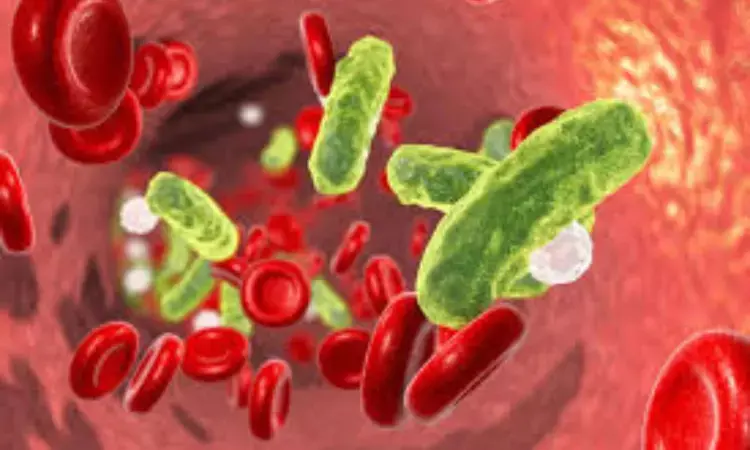- Home
- Medical news & Guidelines
- Anesthesiology
- Cardiology and CTVS
- Critical Care
- Dentistry
- Dermatology
- Diabetes and Endocrinology
- ENT
- Gastroenterology
- Medicine
- Nephrology
- Neurology
- Obstretics-Gynaecology
- Oncology
- Ophthalmology
- Orthopaedics
- Pediatrics-Neonatology
- Psychiatry
- Pulmonology
- Radiology
- Surgery
- Urology
- Laboratory Medicine
- Diet
- Nursing
- Paramedical
- Physiotherapy
- Health news
- Fact Check
- Bone Health Fact Check
- Brain Health Fact Check
- Cancer Related Fact Check
- Child Care Fact Check
- Dental and oral health fact check
- Diabetes and metabolic health fact check
- Diet and Nutrition Fact Check
- Eye and ENT Care Fact Check
- Fitness fact check
- Gut health fact check
- Heart health fact check
- Kidney health fact check
- Medical education fact check
- Men's health fact check
- Respiratory fact check
- Skin and hair care fact check
- Vaccine and Immunization fact check
- Women's health fact check
- AYUSH
- State News
- Andaman and Nicobar Islands
- Andhra Pradesh
- Arunachal Pradesh
- Assam
- Bihar
- Chandigarh
- Chattisgarh
- Dadra and Nagar Haveli
- Daman and Diu
- Delhi
- Goa
- Gujarat
- Haryana
- Himachal Pradesh
- Jammu & Kashmir
- Jharkhand
- Karnataka
- Kerala
- Ladakh
- Lakshadweep
- Madhya Pradesh
- Maharashtra
- Manipur
- Meghalaya
- Mizoram
- Nagaland
- Odisha
- Puducherry
- Punjab
- Rajasthan
- Sikkim
- Tamil Nadu
- Telangana
- Tripura
- Uttar Pradesh
- Uttrakhand
- West Bengal
- Medical Education
- Industry
CRP valid for predicting bacteremia and morality in hyperglycemic emergencies, reveals multicenter study

Japan: In a comprehensive effort to unravel the complexities of infection diagnosis in diabetic ketoacidosis (DKA) and hyperosmolar hyperglycemic syndrome (HHS), a multicenter retrospective observational study has provided valuable insights into the epidemiology, microbiology, and diagnostic approaches associated with these critical metabolic disorders.
The study found a higher mortality rate in patients with bacteremia than in patients without it. C-reactive protein (CRP), rather than procalcitonin (PCT), may be valid for diagnosing bacteremia in hyperglycemic emergencies.
"Among individuals hospitalized with diabetic ketoacidosis and HHS, the mortality rate of patients with bacteremia was higher than that of patients without it," the researchers reported in Diabetes Research and Clinical Practice. "C-reactive protein outshone procalcitonin in diagnosing bacteremia (AUC of 0.85 vs. 0.76)." Age, hypotension, level of consciousness, and elevated CRP levels were identified as key predictors for bacteremia risk.
Kyosuke Takahashi, Jichi Medical University Saitama Medical Center, Saitama-city, Saitama, Japan, and colleagues investigated infection characteristics and the utility of inflammatory markers in diabetic ketoacidosis and hyperosmolar hyperglycemic syndrome.
For this purpose, the researchers conducted a multicenter, retrospective observational study in 21 acute-care hospitals in Japan. The study included adult hospitalized patients with DKA and HHS.
They analyzed the diagnostic accuracy of markers, including CRP and PCT for bacteremia. Multiple regression models were created for estimating bacteremia risk factors.
The researchers reported the following findings:
· 771 patients, including 545 patients with DKA and 226 patients with HHS, were analyzed. The mean age was 58.2 years. Of these, 70 tested positive for blood culture.
· The mortality rates of those with and without bacteremia were 14 % and 3.3 %.
· The area under the curve (AUC) of CRP and PCT for diagnosis of bacteremia was 0.85 and 0.76, respectively.
· Logistic regression models identified altered levels of consciousness, older age, hypotension, and higher CRP as risk factors for bacteremia.
While the study's retrospective nature poses inherent limitations, the insights gleaned from this multicenter analysis provide a foundation for future prospective investigations aimed at refining infection management strategies in patients with DKA and HHS.
As healthcare providers grapple with the complex interplay between metabolic derangements and infectious complications in DKA and HHS, studies like this serve as vital stepping stones toward enhanced diagnostic precision, tailored therapeutic interventions, and improved clinical outcomes for affected individuals.
Reference:
Takahashi, K., Uenishi, N., Sanui, M., Uchino, S., Yonezawa, N., Takei, T., Nishioka, N., Kobayashi, H., Otaka, S., Yamamoto, K., Yasuda, H., Kosaka, S., Tokunaga, H., Fujiwara, N., Kondo, T., Ishida, T., Komatsu, T., Endo, K., Moriyama, T., . . . Sasabuchi, Y. (2024). Epidemiology, microbiology, and diagnosis of infection in diabetic ketoacidosis and hyperosmolar hyperglycemic syndrome: A multicenter retrospective observational study. Diabetes Research and Clinical Practice, 111713. https://doi.org/10.1016/j.diabres.2024.111713
Dr Kamal Kant Kohli-MBBS, DTCD- a chest specialist with more than 30 years of practice and a flair for writing clinical articles, Dr Kamal Kant Kohli joined Medical Dialogues as a Chief Editor of Medical News. Besides writing articles, as an editor, he proofreads and verifies all the medical content published on Medical Dialogues including those coming from journals, studies,medical conferences,guidelines etc. Email: drkohli@medicaldialogues.in. Contact no. 011-43720751


